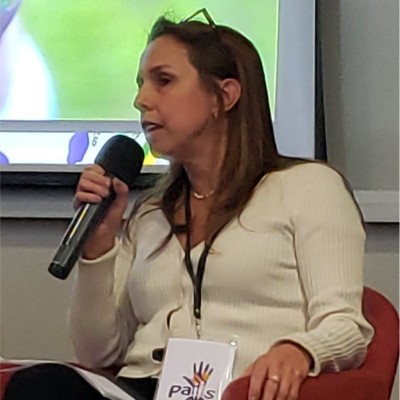Time: Friday, October 4th, 2024 | 12:00PM – 2:00PM
Location: Hesburgh Center for International Studies, C103
Transitional justice mechanisms have become widespread for dealing with the past after the end of civil wars and in the transitions from authoritarian regimes to democracies. In their design and implementation, there is a growing acknowledgement of the need to center transitional justice efforts in the persons who have had first-hand experiences of large scale violence and whose voices should thus gain center stage in truth-seeking and reconciliation programs.
However, little progress has been made in addressing accessibility obstacles for persons with disabilities, elderly people, persons with reading difficulties or those who have low levels of educational attainment. They are frequently left on the margins of the research as well as on the margins of the dissemination of various transitional justice processes, such as Truth Commissions. The Colombian Truth Commission made explicit and important efforts towards incorporating these populations, in an attempt to contribute to more inclusive and, therefore, more effective and sustainable strategies for
transitional justice, peacebuilding and reconciliation.
In this workshop, Dr. Juliana Bustamante will engage participants in a practical exercise of re-writing excerpts of the text of the Final Report in easy-reading format in order to create hands-on opportunities to discuss more comprehensive responses to the following questions:
- Which kind of methodologies are needed for the inclusion of persons with intellectual disabilities, people with reading limitations and low levels of educational achievements in transitional justice efforts?
- How do we incorporate the experiences, concerns and hopes of the elderly in said mechanisms?
- How can we include populations that are generally marginalized in the processes of researching and writing the final reports documenting human rights violations?
- Can transitional justice frameworks have a transformational effect in the defense, protection, and promotion of vulnerable populations’ rights, specially for persons with disabilities?
About the guest speaker and facilitator:
As head of the Action Program of Equality and Social Inclusion (PAIIS) of Universidad de Los Andes in Bogotá, Colombia, Juliana Bustamante led the research of guidelines and methodologies to produce documents in easy-reading format within the framework of the Colombian Truth Commission’s mandate (2018 – 2022), which created a final report divided in 11 volumes, as well as a digital archive with over 200.000 audiovisual files. Insights from more than 28.000 testimonies from victims, witnesses and offenders collected in 24 countries are made public thanks to the hosting of the transmedia at the servers of the University of Notre Dame (www.comisiondelaverdad.co).
PAIIS is a human rights legal clinic at Universidad de Los Andes Law School in Bogota, Colombia that works on the defense, protection, and promotion of vulnerable populations’ rights, with special emphasis on persons with disabilities. Since 2018, PAIIS has conducted several projects to incorporate a strong peacebuilding component in the clinic and was the lead organization that promoted and eventually achieved the extension of the Truth Commission’s working period. Today, the Program is renowned for its expertise in the intersection between disability and peacebuilding, including
responses to armed conflict.
For more information regarding this event, please email LegacyProject@nd.edu.




